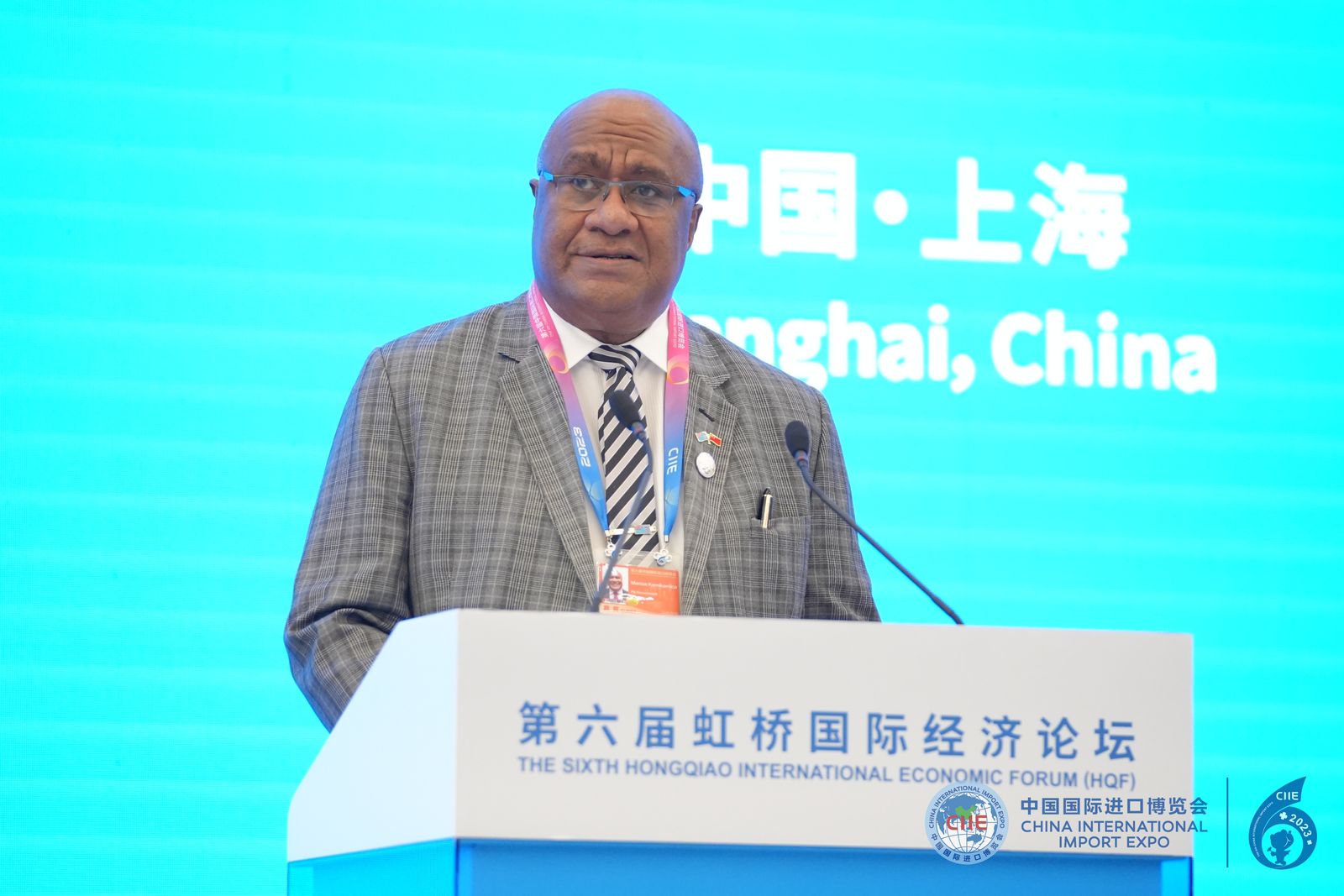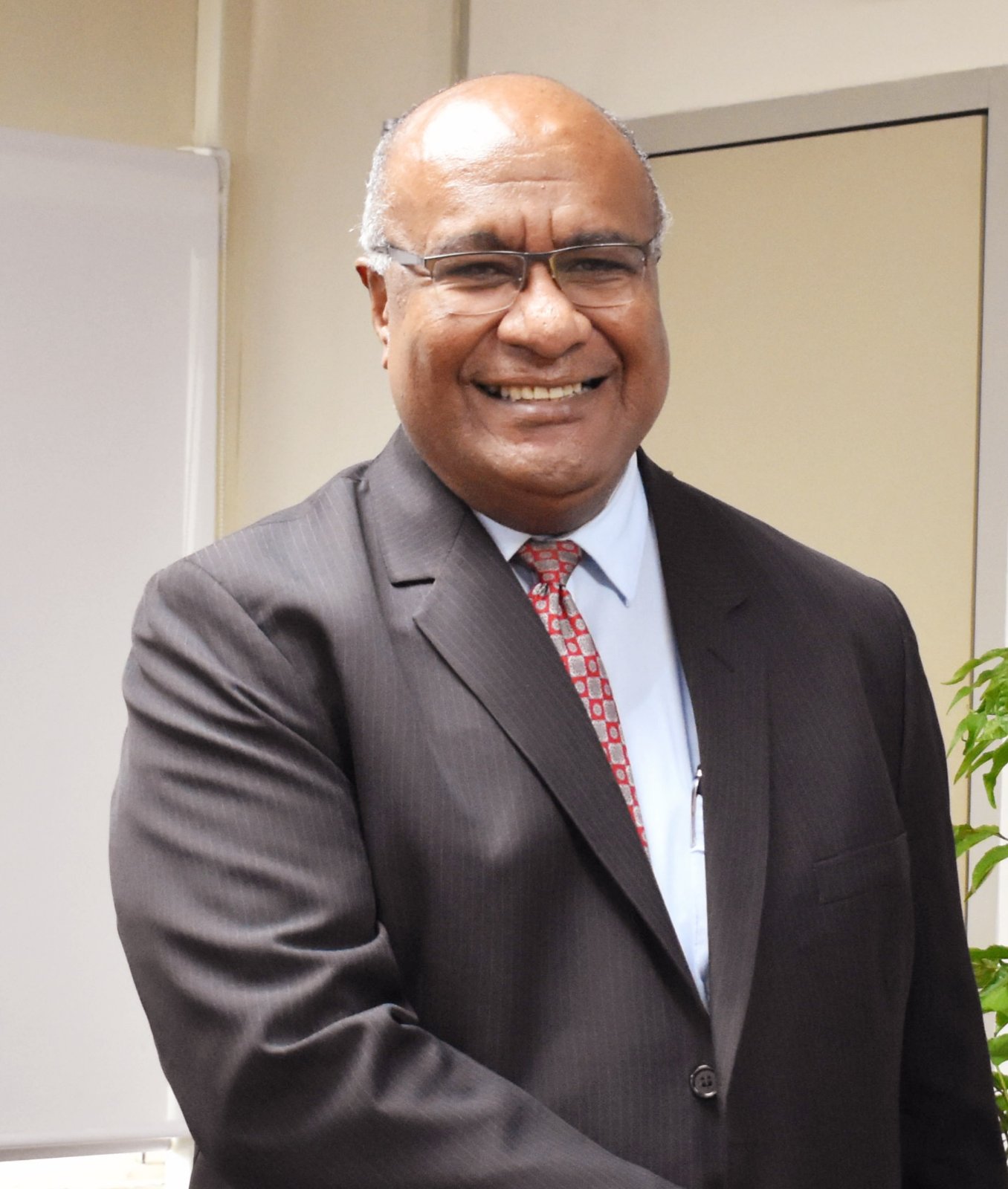Excellencies,
Ladies and Gentlemen,
Leveraging trade and investment for scaling up development and climate financing requires a multi-faceted approach – and through our collective efforts we can reshape, recreate, and transition our economies through new technologies and innovation.
At a National level, the greater perspective of Fiji Government’s commitment to climate action commenced before we championed the COP23 Presidency and being a voice at many more other COP Summits, as a large ocean state Fiji has made great strides in formulating climate change action.
Excellencies,
As policy-makers, the Fiji Government has released numerous key policy documents — such as the Climate Change Act 2021, Low Emission Development Strategy 2018 – 2050 (LEDS) and the National Ocean Policy 2020 – 2030.
Fiji also has a Sustainable Development Bond Framework 2022 – which is the first of its kind developed by a Small Island Developing State that creates a robust taxonomy for green, blue, and social projects. Fiji decided to develop this framework that now allows us to clearly define our capital market operations and leverage new and additional funding for our sustainable development agenda.
Excellencies,
On the same note, the Fiji Government has provided various incentives such as the environmental incentives on bio fuel production, recycling business investment packages, tax free regions or simply Electric Vehicle Charging Station Development Packages – through the Fiji Development Bank.
In addition, our National Energy Policy, endorsed earlier this year, presents a comprehensive stocktake of the challenges, solutions, and policy objectives that will support our people and provides an opportunity-centred approach to our energy transition needs. This Excellencies, is about collaboration and inclusive economic diversification — without meaningful collaboration, our efforts and collective objectives would have been compromise – and I am happy to convey that there has been an inflow of approximately FJ$50m Green Climate Fund Financing which is being managed by a National Designated Authority (NDA) – and this agency is a point of communication between stakeholders in Fiji and the Green Climate Fund (GCF).
Excellencies,
In terms of FDI for a Small Island Developing State such as Fiji, foreign direct investment or investment as a whole, is just like the topic of climate action, it is critical to Fiji’s progress and long-term development. The focus has been to attract quality sustainable investment and we can in fact see a proof of it in Fiji’s Investment Policy – which outlines objectives such as: Addressing investment climate issues, Promoting the development and application of good international standards and practices regarding investment or mobilising private investment that supports economic growth and sustainable development.
In simple terms we can say that Foreign direct investment can help achieve climate action by providing capital to invest in renewable energy, energy efficiency and clean technology. It can also help fund research and development and support emerging markets to transition away from fossil fuels for example.
At this stage – I would like to share the success of our IPA, Investment Fiji and how they have helped integrate both FDI and climate action. Having undergone a strategic reset and through an implemented new 5-year strategic plan. The ultimate goal of Fiji’s IPA is to drive Fiji’s economic recovery, post-COVID by broadening Fiji’s economic base and one of the key highlights of this new strategy is that it has incorporated the SDGs directly into its development.
This takes stock of 5 priority sectors and 15 subsectors which can positively contribute to Fiji’s economic, environmental and social concerns and now Investment Fiji is actively promoting these sectors in international markets. We are confident that if we work better at promoting these industries, we will automatically meet sustainability goals because one of the pillars or the determinant of the study linked to our IPA’s strategic plan is sustainability itself.
Excellencies,
I am also happy to share that Fiji is currently engaging and facilitating investment projects ranging from investors willing to provide green energy solutions, invest in renewable energy and electrical charging stations, carbon trading, Biomass plant and developing and commercialising renewable energy products.
On the “ecologically sustainable development” front, Fiji seeks to create buildings that lessen the environmental impacts of the built environment – as such the whole life cycle of a building from its design, construction, commissioning and operation has greater ambition of being classified as “green buildings”. This entails the involvement of selecting the most appropriate of these ecologically sustainable development initiatives to create a cost effective high performance healthy building.
A perfect example of this is the new “Fijian Holding LTD (FHL) Commercial Tower” which is an 18-storey high rise green building situated in the heart of the Suva Business District.
Excellencies, in closing it is important to remember, that it is crucial to strike a balance between economic growth and environmental sustainability for a green future for all. Thank you and Vinaka Vakalevu.



